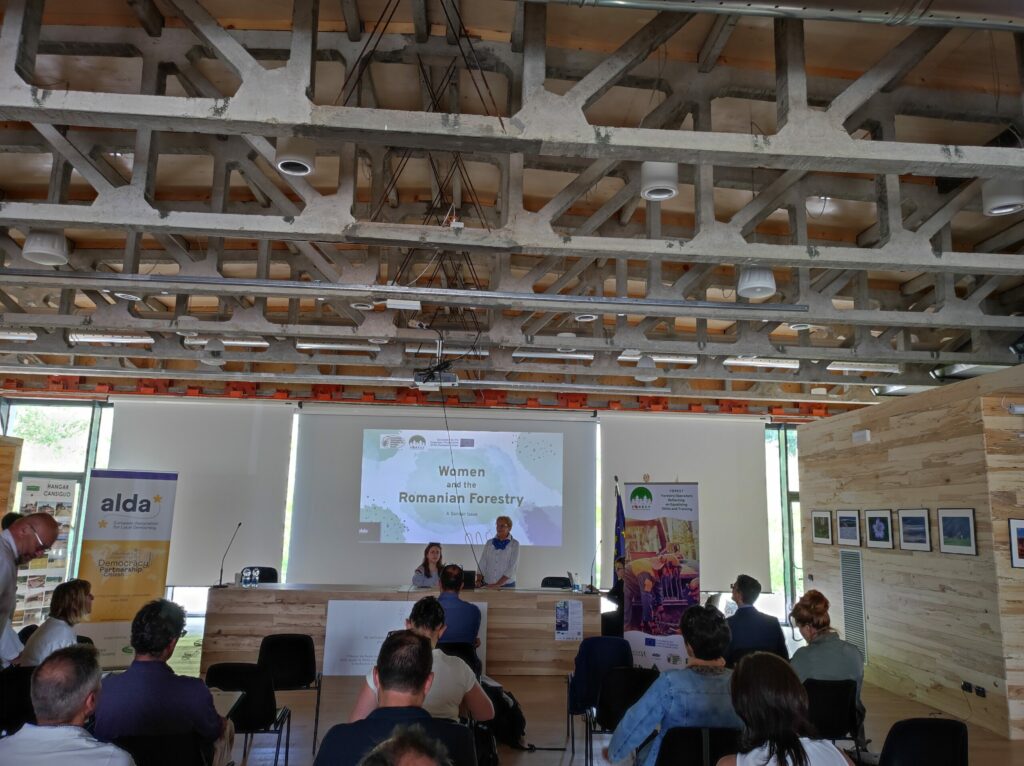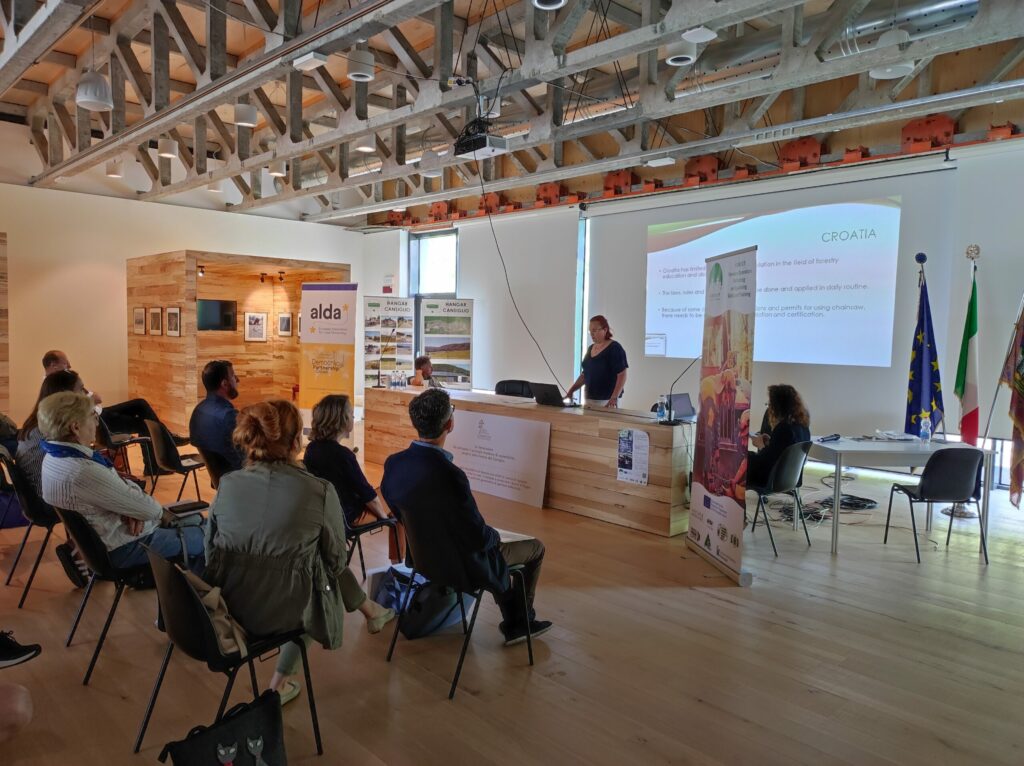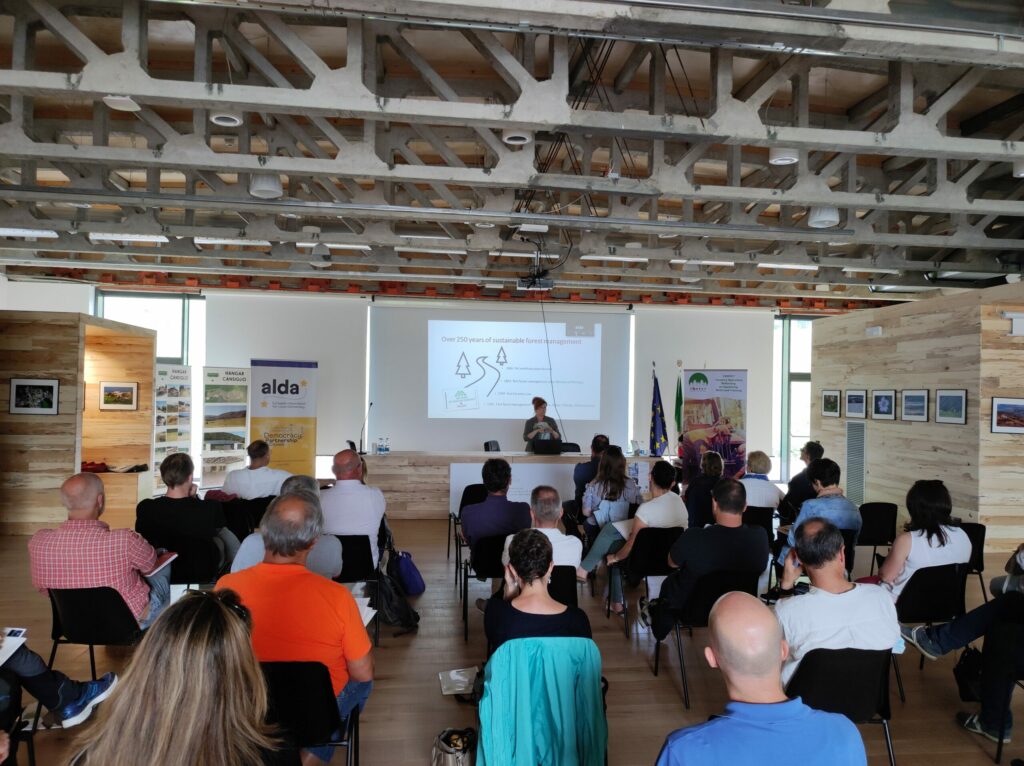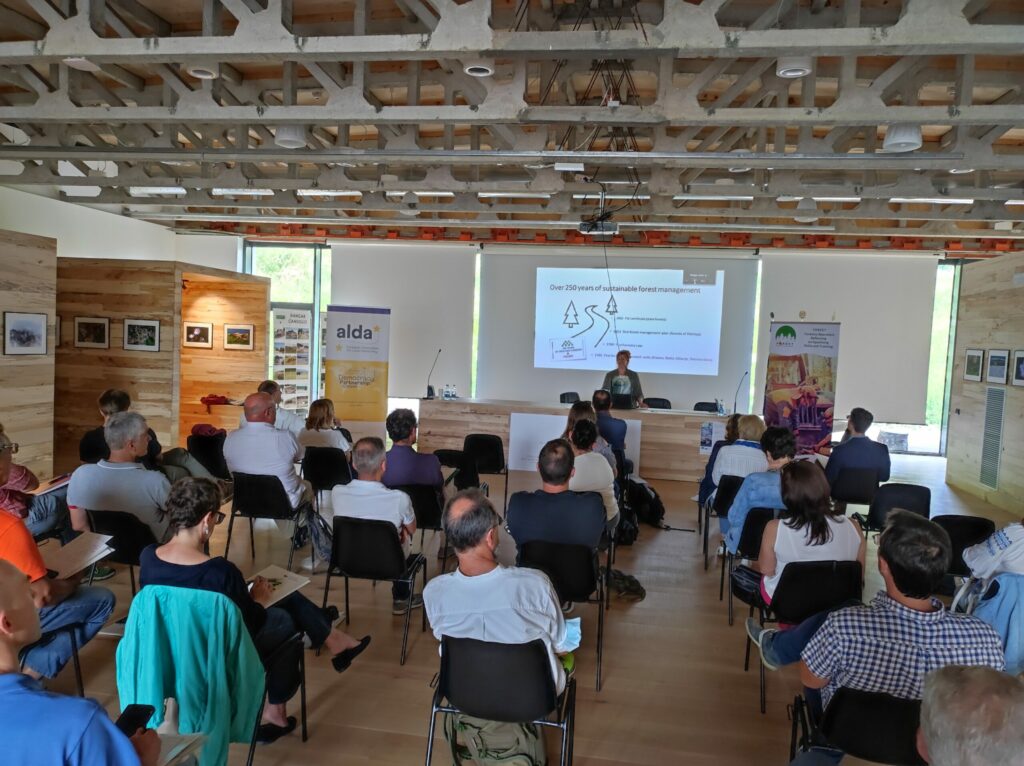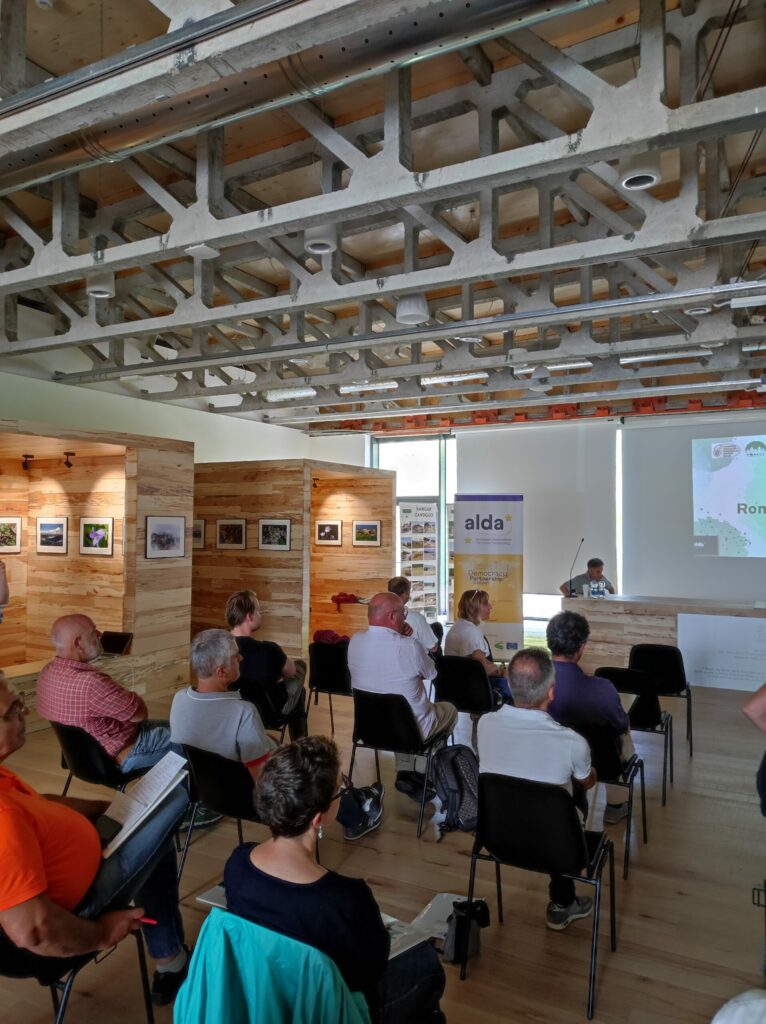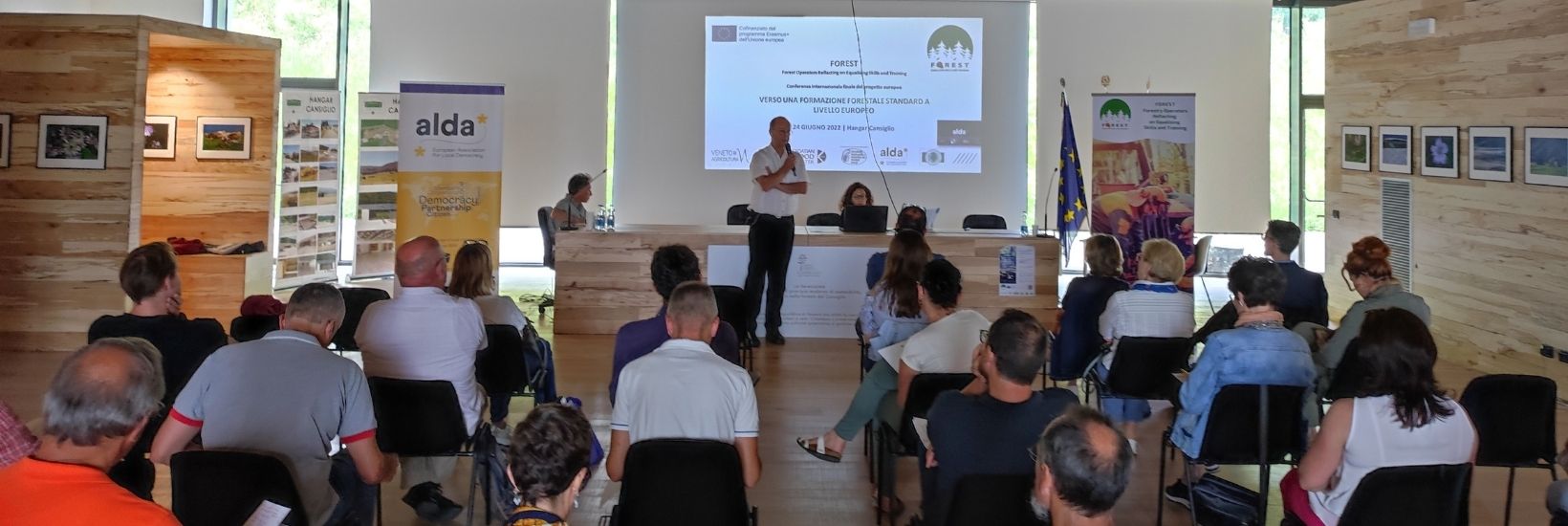Organised by ALDA, Veneto Agricoltura hosted the final event of “Forest Project” in Cansiglio – Italy – on 23rd and 24th June 2022 – at its “Hangar” office. The latter, more specifically, is a beautiful location, built on a dismissed NATO military base.
More in depth on the event itself, the members of the four European organisations from Slovenia, Romania and Croatia that collaborated on the project attended the event:
- GRM Novo Mesto – center biotehnike in turizma
- Forstliche Ausbildungsstätte Pichl
- Asociatia Nationala a femeilor din mediul rural
- Croatian Wood Cluster
The first day was dedicated to the project management meeting, where the partners discussed the results of the project exchanging opinions about the situations in their home countries and talked together about a possible future cooperation.
On the 24th June 2022, the FOREST final public conference started at 10 a.m. in the Hangar in Cansiglio. Almost 40 participants joined the conference, among forest owners, operators and educators.
The event started with a general presentation of the project by Nadia Di Iulio from ALDA and Federico Correale from Veneto Agricoltura, followed by Alessandra Brigo, Project Manager from ALDA, and Ana Dijan’s, from Croatian Wood Cluster, presentation of the Booklet “Towards an European standard forestry curricula”, developed within this project. Hence, as illustrated by Alessandra Brigo, this document aims to provide a summary of the information and comparative analyses carried out within the project, as well as to suggest some specific reflections on the importance of moving towards a harmonisation of forestry education.
In addition, Ana Dijan showed and commented on the main results obtained by the comparative analysis run in 5 countries (Italy, Austria, Croatia, Slovenia, Romania).
FOREST final event: a great opportunity for everybody to exchange opinions, experiences and different points of view
For instance, the survey results depend on the country, its legislative framework and state-of-art forestry. Although the education and training systems are different in each country, the results show that almost half of the participants (46%) are not satisfied with the organisation of the education system, in particular with the number of hours dedicated to practice during the training period. Approximately 60% of the polled confirm that they are not familiar with the European chainsaw certificate but at the same time the majority (64%) support the idea of introducing the European chainsaw certificate as a mandatory requirement in the employment process. However, almost two-thirds of respondents (68%) favour experienced workers over holders of European chainsaw certificates when hiring.
Besides, relevant Italian regional representatives also contributed to the conference:
- Isabella Pasutto (Veneto Region) illustrated an overview of the Forestry Training Session in Veneto Region.
- Valerio Motta Frè (Piedmont Region) and Pierpaolo Brenta (IPLA) followed with the presentation of a national and successful standardisation initiative: “The For.Italy Project: an Experience of standardisation of forestry training on a national scale”.
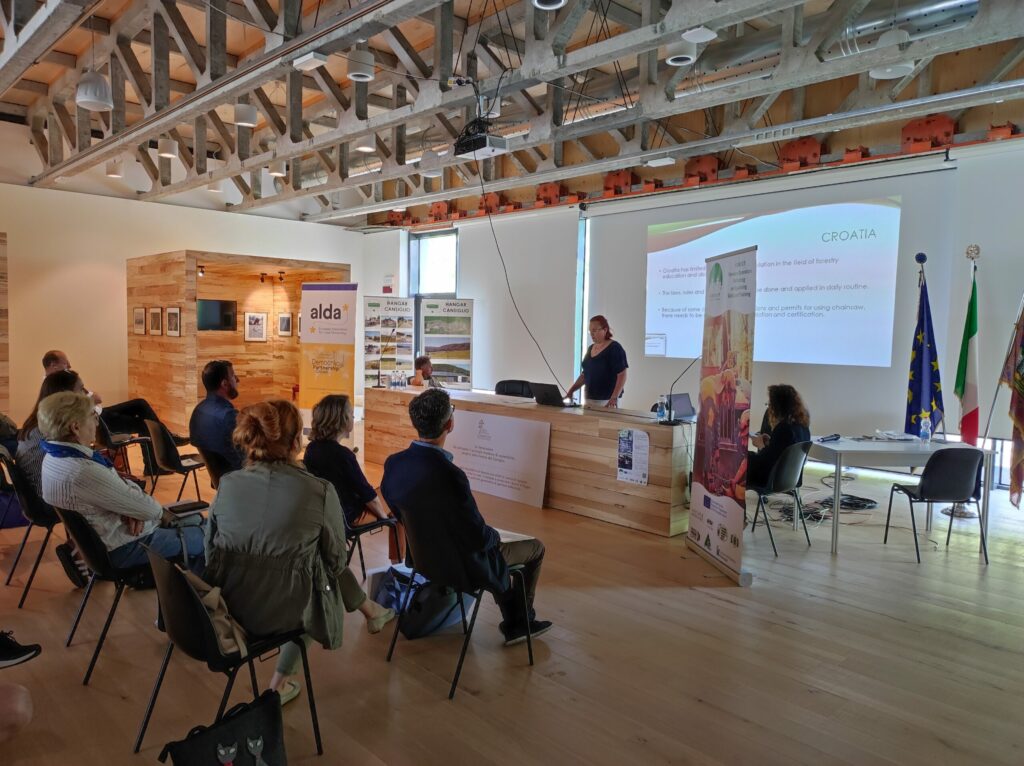
Finally, project partners took the floor starting with Martin Krondorfer from Forstliche Ausbildungsstätte Pichl. He talked about Safety in forest work, explaining the tools needed to reduce the of the accidents in the forests such as equipment for the forestry workers.
Barbara Turk from GRM Novo Mesto – center biotehnike in turizma, Slovenia, showed a presentation related to the legislative framework, certifications and qualifications about every country, explaining the differences between them.
After a coffee break, the meeting continued with two speeches from Ana Vorovenci and Diana Bacircea, from the Asociatia Nationala a femeilor din mediul rural, focused on the woman inclusion in the forestry. The Asociatia underlines how the forest sector is still considered ”a man’s world” and it is one of the most segregated gender activities. Indeed, the goals of this association are encouraging forest women owners’ involvement in forestry entrepreneurship and supporting women in attending forestry training/certification. Lastly, Ana Dijan from Croatian Wood Cluster intervened to give an overview of sustainability as part of safety on work.
After the lunch, the partners and conference participants joined a study tour through the Cansiglio forests and visited the botanical garden, guided by Veneto Agricoltura. Concluding, a debate between the participants and the FOREST project partners was a great opportunity for everybody to exchange opinions, experiences and different points of view according to the main topic of the conference.
***
🇦🇲 Read the news in Armenian


